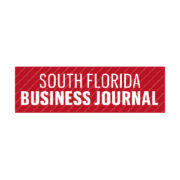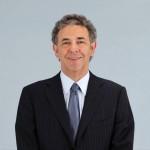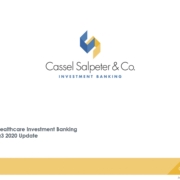More charged, $12 million to victims: an update in South Florida company’s $281 million fraud
By David J. Neal
December 28, 2020
Victims of the 1 Global Capital fraud received another $12 million this week and the Securities and Exchange Commission charged three more unregistered brokers allegedly involved in selling the Hallandale Beach company’s securities this month.
But that $12 million and the $317,690 from one of the men charged by the SEC still might be scant solace to the 3,600 investors scammed out of hundreds of millions by 1 Global Capital’s white collar gang.
THE MONEY
Cassel Salpeter’s James Cassel, liquidating trustee of the 1 GC Collections Creditors’ Liquidating Trust, said the $12 million brings the total returned to investors to $124 million, about 44 cents on the dollar.
“I got a phone call from a retired teacher in California who put $10,000, everything she had other than Social Security, into the the company. That is who I’m working for,’” Cassel said he told another attorney connected to the case. “We want to feel we’ve maximized recovery for over 3,500 investors, who are, unfortunately, going to lose money.”
At 44 cents on the dollar, that puts the amount ripped off at $281.8 million. Various court documents place the amount at $322 million.
THE SCHEME
As stated in various court documents of those already convicted of their role, 1 Global Capital was sold to investors as a short-term, high-interest cash lender for small businesses. Investors would get their principal and some interest when the businesses repaid 1 Global.
Lies fooled those investors concerning the high commissions paid to middlemen and unlicensed brokers; the securities laws being broken, concealed by fraudulent legal opinions; the money sucked out of 1 Global for personal use by CEO Carl Ruderman; and the $50 million in arrears the group attempted to cover up, Ponzi-scheme style.
Over the last 15 months, the Justice Department and SEC pulled a parade of 1 Global cronies through the federal courts on their way to federal prison.
- Chief financial officer Alan Heide already is sitting in federal prison in Jesup, Georgia until December 2024 after pleading guilty to securities fraud.
- Attorney Jan Atlas’ sentencing has been set for Jan. 21 on securities fraud.
- Former 1 Global director Steven Schwartz is set for sentencing April 9 on
securities fraud and conspiracy to commit wire fraud. - Attorney Andrew Ledbetter has entered a plea agreement on those same charges and even was allowed to travel to Washington D.C. to spend Thanksgiving with his adult son.
Ruderman still hasn’t been criminally charged. The SEC gained a judgment against him in 2019 that included a $32 million disgorgement, a $15 million civil penalty, another $750,000 in cash; and half the equity in his five-bedroom, seven-bathroom, 9,600-square-foot tower suite condominium at Aventura’s Bella Vista North, 20165 NE 39th Pl.
THE NEWLY CHARGED
The SEC charged Roger E. Dobrovodsky, a 66-year-old from Indianapolis, with being an unregistered broker during the 16 months in 2017 and 2018 that he sold 1 Global Capital securities while using fraudulent materials. The SEC says Dobrovodsky has consented, without legally admitting any wrong, to giving up the $317,690 he made in commission, $32,038 in prejudgment interest and $50,000 civil penalty.
The amounts of those punitive payments from Robert Seth of Georgetown, Texas, the SEC says, still have to be determined although Seth’s consented to them. He made almost $282,000 in commissions, the SEC charges, from his two years of selling 1 Global securities as an unregistered broker.
Matthew Walker, 40, from Olathe, Kansas, is the managing partner and chief compliance officer of Pinnacle Plus Wealth Management. The SEC says Walker, also, was an unregistered broker who kept selling 1 Global securities until June 2018, “despite being confronted with numerous red flags that the 1 Global investments were not what he had been told and that 1 Global officers had not been honest with him.”
The SEC says Walker earned $393,306 in commissions and his companies earned another $300,000. Most of his customers, numbered at over 140, were from the Kansas City area.
Click here to read the full article.







